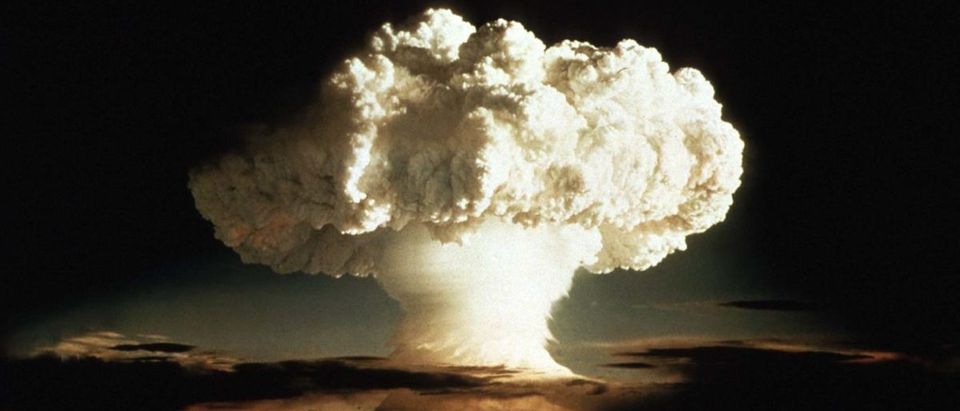The U.S. is reportedly increasing spending on a secret research program to develop artificial intelligence-driven systems capable of better protecting the country from a nuclear missile strike.
AI systems would independently scan data, such as satellite images, to anticipate a possible strike, Reuters reports, citing more than half a dozen sources. Theoretically, the program would be able to find hidden nukes, as well as track and target road-mobile launchers, like those preferred by North Korea and China. Early warning would give the U.S. a greater edge in ballistic missile defense.
The military is reportedly planning to triple the budget for this program, but some argue that spending remains inadequate. The artificial intelligence program is apparently still in its infancy.
“We should be doing everything in our power to find that missile before they launch it and make it increasingly harder to get it off (the ground),” one U.S. official told Reuters.
Currently, the main line of defense in the event of a nuclear missile strike on the U.S. is the ground-based midcourse defense (GMD) system. In recent tests, the system has successfully intercepted mock intercontinental ballistic missiles, but the GMD system has a much lower success rate than some of America’s theater ballistic missile defense systems. (RELATED: This Is What It Looks Like When A US Interceptor Obliterates An ICBM)
The Trump administration has put significant emphasis on missile defense. The president’s budget request for 2019 aimed to boost spending on missile defense by a little over 25 percent, allocating $12.9 billion for relevant programs.
The focus on missile defense comes as China and Russia invest heavily in hypersonic missiles and new nuclear missiles, North Korea adds two new ICBMs to its nuclear arsenal, and Iran attempts to bolster its missile force. China and Russia are also looking into incorporating artificial intelligence into their advanced military systems.
There are, of course, concerns about errors in the AI system, which is why U.S. Air Force General John Hyten, head of U.S. Strategic Command, previously warned that “safeguards” would need to be put in place to prevent unnecessary escalation in a crisis. There is also the possibility that an enemy could fool the system to make its nuclear arsenal undetectable.
Send tips to ryan@
All content created by the Daily Caller News Foundation, an independent and nonpartisan newswire service, is available without charge to any legitimate news publisher that can provide a large audience. All republished articles must include our logo, our reporter’s byline and their DCNF affiliation. For any questions about our guidelines or partnering with us, please contact licensing@dailycallernewsfoundation.org.


